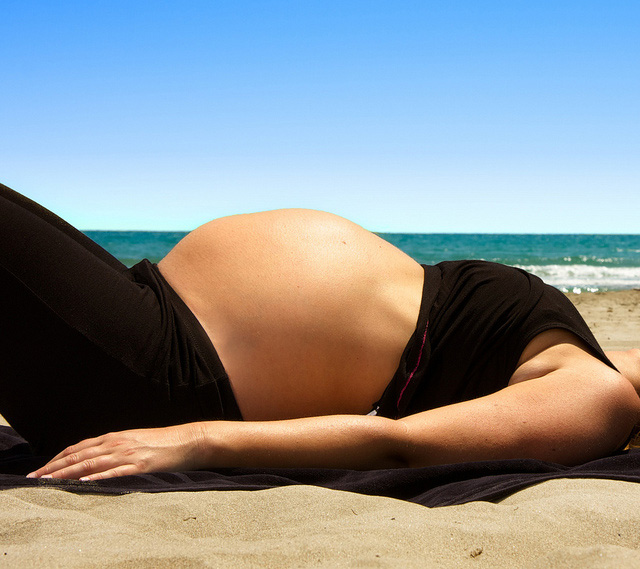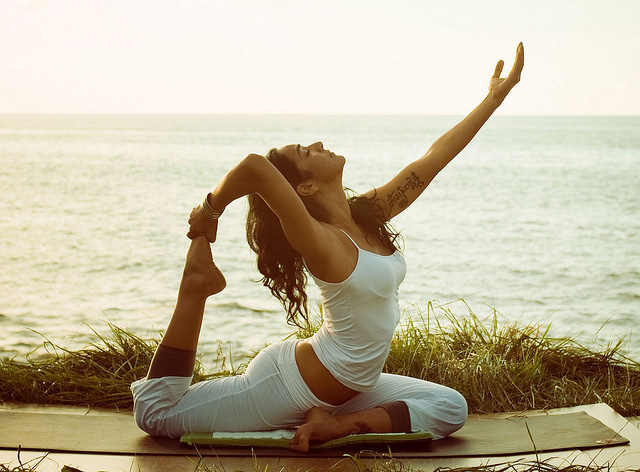Are you baby ready?
2016-11-15

Photo by N G on flickr
Both of you are ready for the next step in the relationship: having a baby. Now’s a time to start the prepping your body and mind for a new life growing inside you. Here are your the dos and don’t(s) of getting baby ready.
Do(s)
Getting things checked
Not just you, but getting your partner too. It ensures that you both don’t possess any other underlying medical issues (diabetes, thyroid problems and irregular periods) that affect your chances of being pregnant. Your obstetrician can also advise you on how to proceed with your plans.
They are also able to highlight and examine any deterrent factors like family medical history, drug intakes and even your psychosocial issues. Pelvic exams for identifying sexually transmitted disease, ultrasound scans and/or Pap smear for overall reproductive health might be performed. Also, they are more qualified to answer any queries you have. Getting a pre conception screen will assist you in having an uncomplicated pregnancy, in turn a healthy baby!
Eat right
While visiting the obstetrician or gynaecologist, they would offer the same advise to you as well: eating clean. Slowly begin to eliminate unhealthy food from your diet and replace them healthier substitutes.
The weather gets the better of you sometimes and you slurped up more servings of ice-kachang or iced lemon tea than expected. It is good to keep your diet in check using a food diary, or a food journaling app. The earlier, the better! So, when you are pregnant you are already used to your diet and it would be less of a dread when coupled with potential pregnancy symptoms.
Additionally, you can start stocking up on folic acid supplements or pre-natal vitamins. Daily intake of at least 400mg of folic acid prevents serious birth defects of the brain (anencephaly) and spine (spina bifida) by up to 70%. This occurs in the very early stages of pregnancy, even before many women know that they are pregnant.

Photo by Gokhan Aralik on flickr
Being active
We all know our sedentary lifestyle isn’t the best for our health, no less for a baby. Reason like having a hectic lifestyle, just cannot cut it anymore, especially when it comes to your baby’s health.
Pilates and yoga are a great start, because you can actually continue to do so during pregnancy. Pilates strengthens your core muscles that support your pelvic and tummy muscles. Whereas yoga relaxes your body and mind while keeping you toned. Stress can also wreck havoc on your body (like irregular periods), so practicing yoga can keep your stress levels in check too.
Again, starting incorporating such exercises into your lifestyle only serves to make your pregnancy easier. Once pregnant, you can take it slower. For yoga, it is ideal that you pause the lessons until you are in your second trimester. For convenience’s sake, do check with the centres whether if they offer pre-natal lessons. So that even after you are pregnant, you can continue your lessons there.
Birth control
This is an obvious one. Depending on the type of contraception, it will affect your ovulation period. For oral intakes like pills, cutting it immediately may cause some to quickly ovulate again. However, some of you can also take months to start ovulating, especially if there’s a prolonged usage. Stopped it already and still no period in sight for 3 months? Book an appointment with your GP or gynaecologist as soon as possible.
If you gave an Intrauterine Device (IUD), do get it removed. Once removed, your menstrual cycle will resume as well. Contraceptive injections like Depo Provera have effects that last up to three months, so you just have to wait till it wears off. For those using barrier methods (e.g. condoms), just ditch them!
Toxins and endocrine disruptors
There are loads of environmental toxins that are surrounding us. Especially with the haze situation running amok, it can be hard to avoid these air pollutants.
But it doesn’t mean that we can’t try our best to avoid them, particularly those endocrine disruptors. They have the ability to disturb our endocrine system, which regulates our hormones.
Example: Bisphenol A (BPA), which has been linked to breasts, reproductive and hormonal problems. Pesticides, too contains such disruptors, so its best you wash your fruits and vegetables thoroughly. A research paper published in the US National Library of Medicine, National Center for Biotechnology Information reveals that such industrial contaminants like pesticides and plasticisers and naturally occurring phytoestrogens (found in soy) have effects on wildlife animals’ lactation and breast growth.

Photo by Andria on flickr
Kicking bad habits
Bad habits like smoking, excessive alcohol and coffee intake takes time to change. This is precisely why it is high time you kick these bad habits away, right now!
Something as innocuously as caffeine, in high dosages can delay conception. Though there are conflicting evidence, experts still advise you to err on the side of caution. The Fertility Society of Australia recommends limiting your coffee intake to one to two cups per day for women trying to conceive.
Next taboo substance: alcohol. We know; we love a good glass of wine too!
Similarly, evidence against alcohol consumption and conception are unclear with limited studies. Nevertheless, it still poses as a health risk as maternal alcohol consumption is dangerous to the unborn child. Especially if you are unaware of your pregnancy in the initial months)!
Spread this message to your partner too as alcohol can reduce libido, affect sperm quality and causing impotence. When combined, male and female alcohol consumption can increase the risk of miscarriages.
Last but not least, smoking is also known to cause damage on a micro-cellular level in human sperm cells. That certainly doesn’t bode well when you are trying for a baby. Furthermore, it decreases your fertility by causing egg depletion. Tobacco is also associated with increased health risk for the baby like increase chances of childhood leukaemia and heart problems. Exposure to second-hand smoke can also suffer all these risks. Thus it is vital that you and your partner are committed to stave off those cigarettes!










